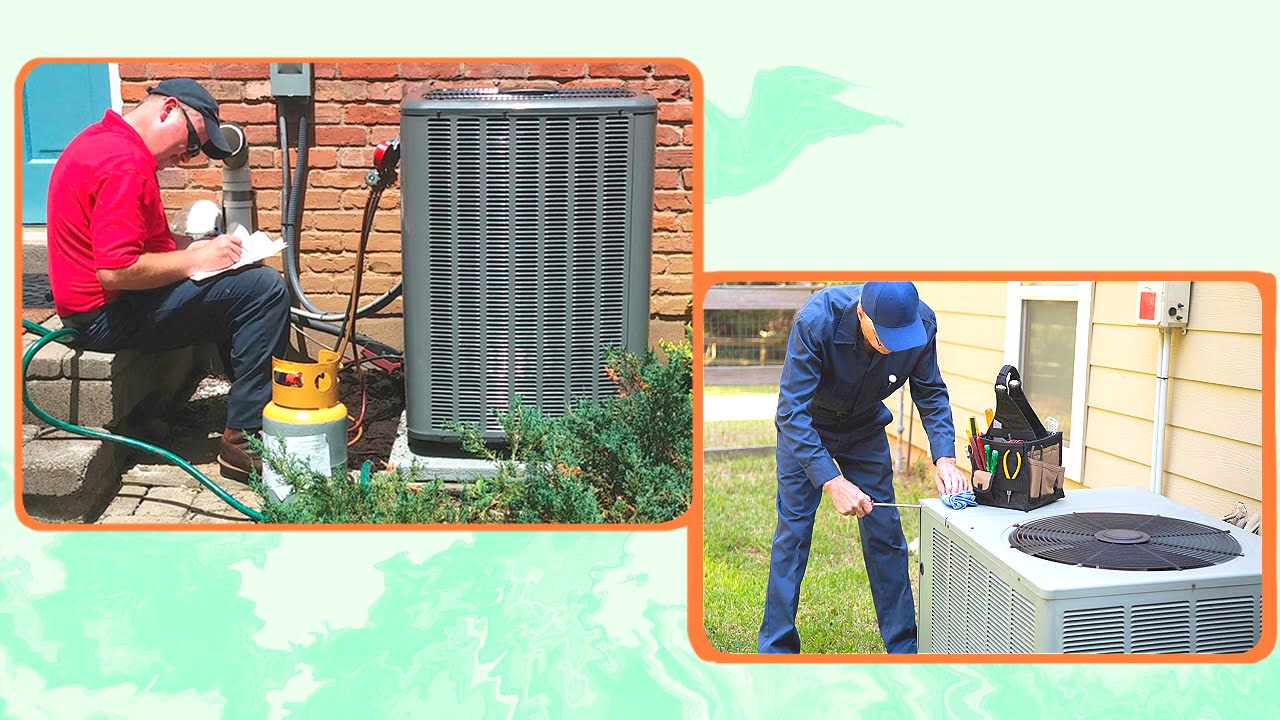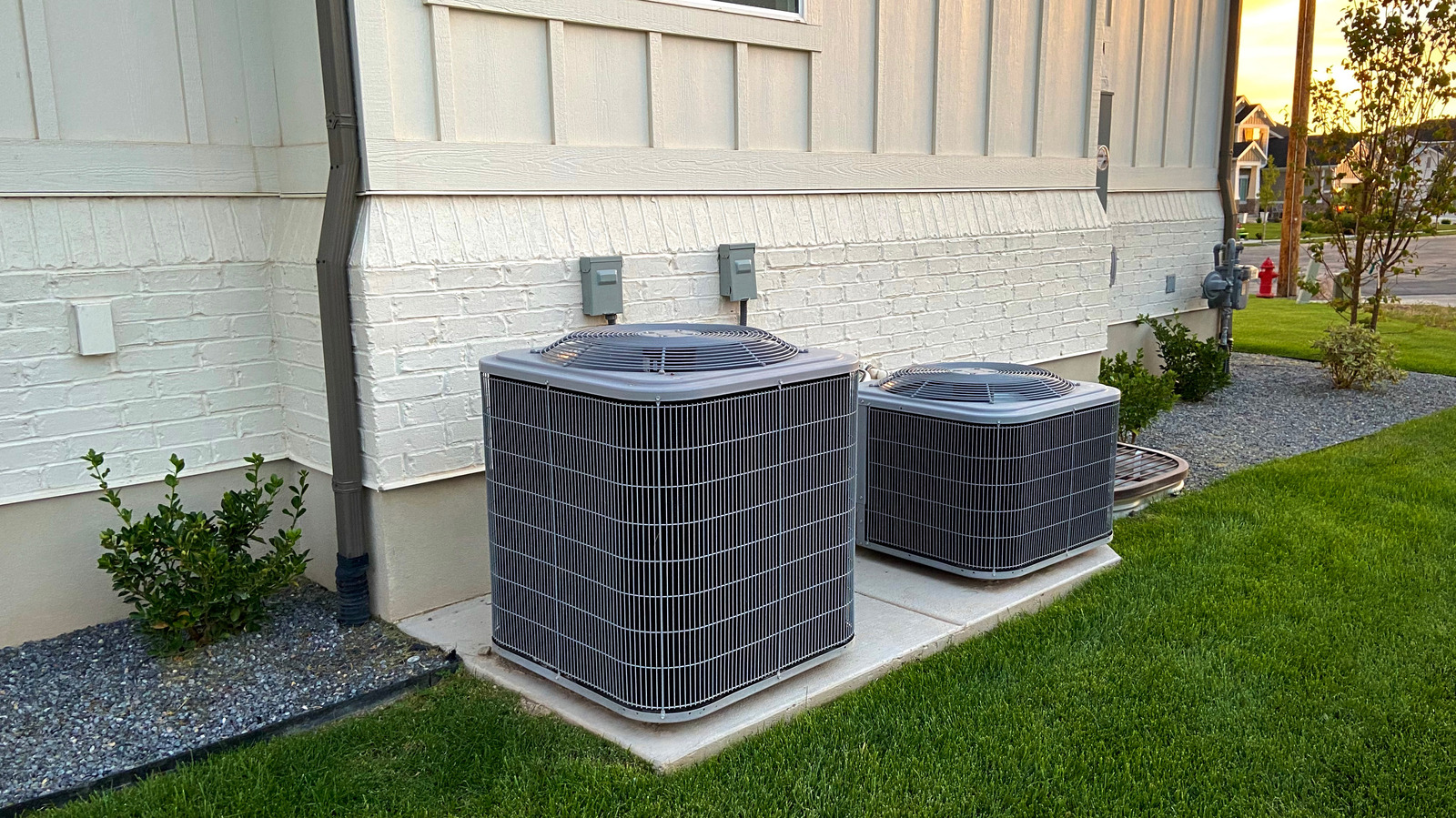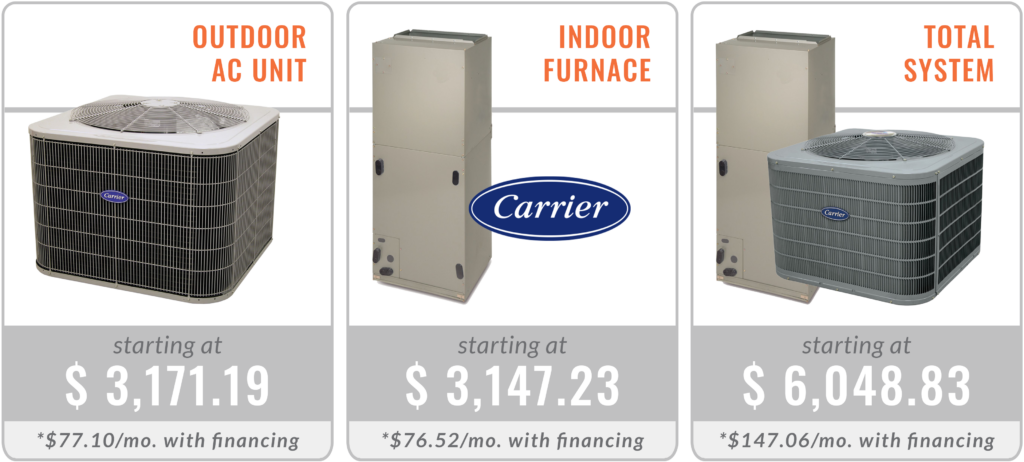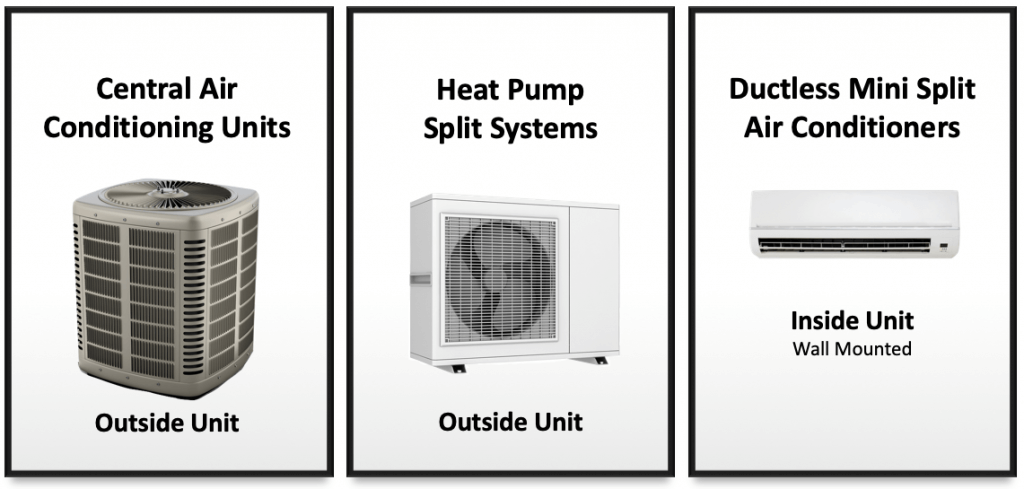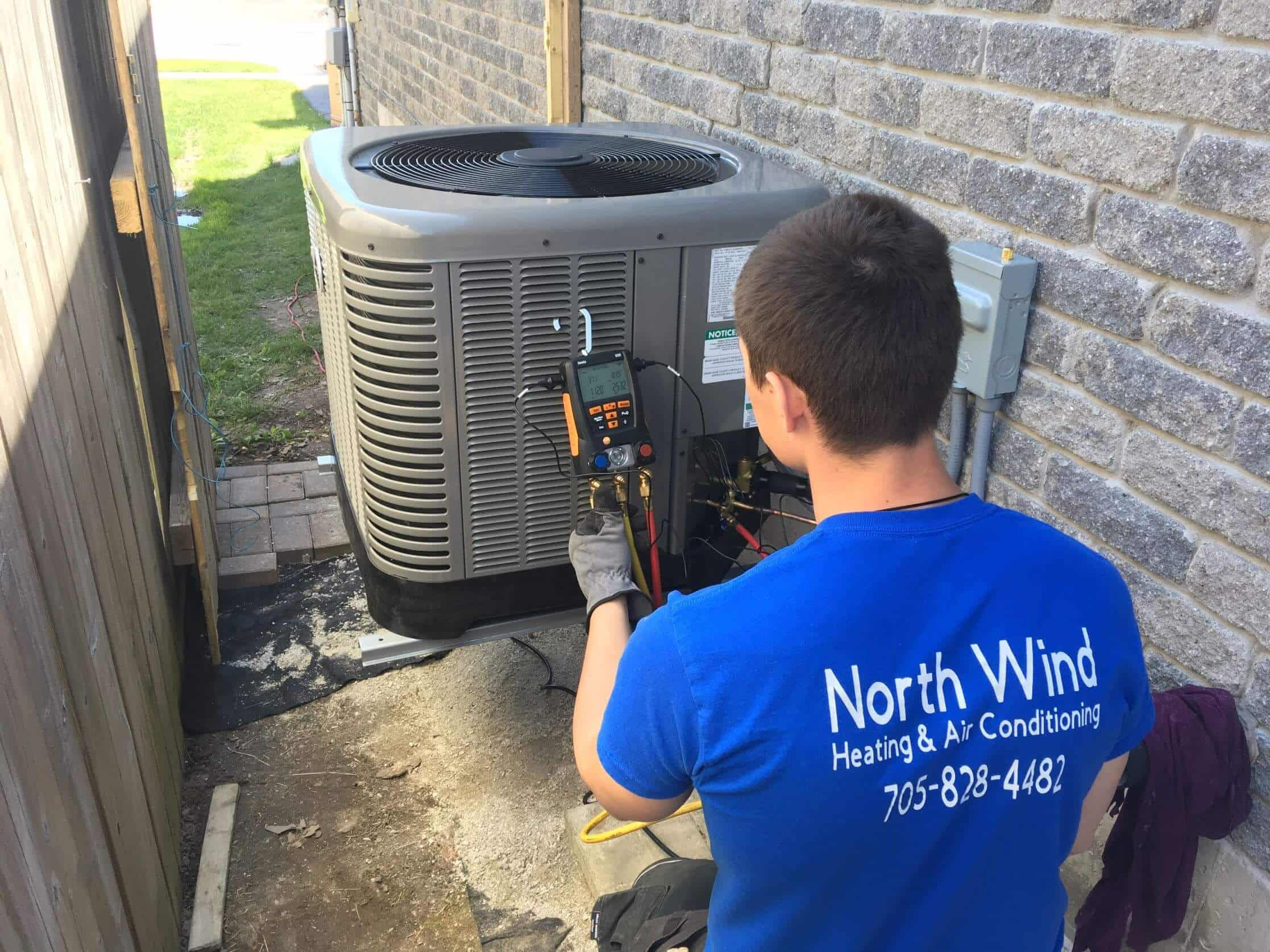Price To Replace Central Air Conditioner

Central air conditioning is a cornerstone of modern comfort, especially in regions with hot summers. Whether you're a homeowner facing a failing unit, an HVAC technician building your skillset, or an employer managing service operations, understanding the costs associated with replacing a central AC system is crucial. This article delves into the factors influencing replacement costs, career paths related to AC installation and maintenance, and the importance of certifications in the HVAC industry.
Central AC Replacement Costs: A Comprehensive Breakdown
The price to replace a central air conditioner isn't a fixed number. It's a range influenced by several factors. As of 2024, you can generally expect to pay anywhere from $4,000 to $12,000 or more for a complete central AC replacement. This broad range highlights the impact of these variables:
Factors Affecting Replacement Costs
- Unit Size (BTU): The larger the space you need to cool, the more powerful (and expensive) the AC unit. Sizing is measured in British Thermal Units (BTU). An undersized unit will struggle to cool effectively, while an oversized unit can lead to short cycling and humidity problems. A professional load calculation is essential.
- Efficiency (SEER Rating): The Seasonal Energy Efficiency Ratio (SEER) indicates how efficiently an AC unit uses energy. Higher SEER ratings mean lower energy bills but also a higher initial purchase price. Current minimum SEER requirements vary by region.
- Brand Reputation: Established brands often command a premium due to their reliability, warranty offerings, and advanced features. Some popular brands include Carrier, Trane, Lennox, Rheem, and Goodman.
- Installation Complexity: Replacing an AC unit in a straightforward, easily accessible location will be less expensive than a complex installation requiring ductwork modifications, electrical upgrades, or crane services. Older homes may present unique challenges.
- Ductwork Condition: If your existing ductwork is leaky or damaged, replacing it along with the AC unit is highly recommended for optimal performance and energy efficiency. This adds significantly to the overall cost.
- Labor Costs: Labor rates vary by region and the experience level of the HVAC technicians. Hiring licensed and insured contractors is crucial, even if their rates are slightly higher.
- Permits and Inspections: Most jurisdictions require permits for AC replacements, and inspections are necessary to ensure the installation meets code. These costs are typically included in the contractor's estimate.
- Refrigerant Type: Newer AC units use more environmentally friendly refrigerants like R-410A. Older units using R-22 are being phased out, and replacements can be costly due to the refrigerant's scarcity.
Example: A homeowner in Phoenix, Arizona, replacing a 3-ton, 16 SEER AC unit with a comparable model can expect to pay around $5,500 - $7,500 for the unit and installation. However, if the ductwork also needs replacing, the cost could easily exceed $10,000.
The HVAC Career Landscape: Opportunities and Growth
The HVAC industry is experiencing significant growth, driven by increasing demand for energy-efficient systems, stricter regulations, and a skilled labor shortage. The Bureau of Labor Statistics projects a growth rate of 5% for HVAC technicians from 2022 to 2032, about average for all occupations. This translates into numerous job opportunities for qualified individuals.
Entry-Level Positions
Entry-level positions typically include apprentice HVAC technicians and helpers. These roles provide on-the-job training and exposure to various aspects of HVAC installation, maintenance, and repair. Earning potential at this stage ranges from $30,000 to $45,000 per year, depending on location and experience.
Experienced Technicians
With experience and certifications, HVAC technicians can advance to higher-paying roles, such as lead installers, service technicians, and HVAC supervisors. Experienced technicians often specialize in specific areas, such as residential AC systems, commercial refrigeration, or building automation. Salaries for experienced technicians range from $45,000 to $75,000 or more annually.
Specialized Roles and Career Paths
The HVAC industry offers diverse career paths beyond traditional technician roles:
- HVAC Design Engineer: Designs HVAC systems for new construction and renovation projects. Requires a bachelor's degree in mechanical engineering or a related field.
- HVAC Sales Engineer: Sells HVAC equipment and services to commercial and industrial clients. Requires strong technical knowledge and sales skills.
- HVAC Project Manager: Manages HVAC installation and maintenance projects, ensuring they are completed on time and within budget.
- HVAC Business Owner: Starts and manages their own HVAC company. Requires strong business acumen and technical expertise.
Example: Sarah, a recent HVAC graduate, started as an apprentice at a local HVAC company. After gaining experience and earning her NATE certification, she became a lead installer specializing in ductless mini-split systems. Her salary increased significantly, and she is now considering starting her own HVAC business.
The Importance of Certifications
Certifications are essential for career advancement and demonstrating competency in the HVAC industry. They validate your skills and knowledge, enhance your credibility, and often lead to higher earning potential.
Key HVAC Certifications
- EPA Section 608 Certification: Required by law for any technician who handles refrigerants. This certification ensures that technicians understand proper refrigerant handling procedures to protect the environment.
- NATE (North American Technician Excellence) Certification: A highly respected industry certification that demonstrates competency in specific HVAC areas, such as installation, service, and efficiency. NATE offers various certifications, including air conditioning, heat pumps, and gas heating.
- HVAC Excellence Certification: Another reputable certification organization that offers a range of certifications for HVAC technicians.
- State and Local Licensing: Many states and municipalities require HVAC contractors and technicians to be licensed. Licensing requirements vary by location.
Quote:
"Earning my NATE certification was a game-changer for my career," says John, a seasoned HVAC technician. "It not only boosted my confidence but also opened doors to higher-paying jobs and more complex projects."
Factors Affecting the Cost of Hiring HVAC Professionals
For employers, understanding the costs associated with hiring and retaining skilled HVAC professionals is crucial for managing labor expenses and ensuring quality service.
Factors Influencing Labor Costs
- Experience and Certifications: Technicians with more experience and industry certifications command higher salaries.
- Location: Labor rates vary significantly by region, with higher costs in metropolitan areas.
- Benefits Packages: Offering competitive benefits packages, including health insurance, retirement plans, and paid time off, is essential for attracting and retaining top talent.
- Training and Development: Investing in ongoing training and development programs can improve employee skills and productivity, leading to long-term cost savings.
- Overtime Pay: Demand for HVAC services often fluctuates seasonally, requiring technicians to work overtime. Overtime pay can significantly increase labor costs.
Strategies for Managing Labor Costs
- Implement efficient scheduling practices: Optimize technician schedules to minimize travel time and maximize billable hours.
- Invest in technology: Utilize technology such as mobile dispatching software and remote monitoring systems to improve efficiency and reduce labor costs.
- Offer performance-based incentives: Reward technicians for achieving performance goals, such as customer satisfaction and first-call resolution rates.
- Focus on employee retention: Reduce employee turnover by creating a positive work environment, offering competitive compensation, and providing opportunities for career advancement.
Emerging Trends in the HVAC Industry
The HVAC industry is constantly evolving, with new technologies and trends emerging regularly.
- Smart HVAC Systems: Smart thermostats and HVAC systems are becoming increasingly popular, allowing homeowners to control their heating and cooling systems remotely and optimize energy consumption.
- Variable Refrigerant Flow (VRF) Systems: VRF systems are gaining traction in commercial applications, offering zoning capabilities and energy efficiency.
- Geothermal Heat Pumps: Geothermal heat pumps are an environmentally friendly alternative to traditional HVAC systems, utilizing the earth's natural heat to provide heating and cooling.
- Increased focus on Indoor Air Quality (IAQ): Growing awareness of the importance of indoor air quality is driving demand for air purifiers, humidifiers, and ventilation systems.
- Sustainable Refrigerants: The industry is transitioning towards refrigerants with lower global warming potential (GWP) to reduce environmental impact.
Staying informed about these trends is essential for HVAC professionals and employers to remain competitive and provide cutting-edge solutions to their customers.
In conclusion, understanding the costs associated with replacing a central air conditioner is essential for homeowners and HVAC professionals alike. A successful replacement requires careful planning, accurate sizing, and the expertise of qualified technicians. For those considering a career in HVAC, the industry offers numerous opportunities for growth and advancement. By investing in education, certifications, and staying abreast of emerging trends, HVAC professionals can build rewarding and lucrative careers.


